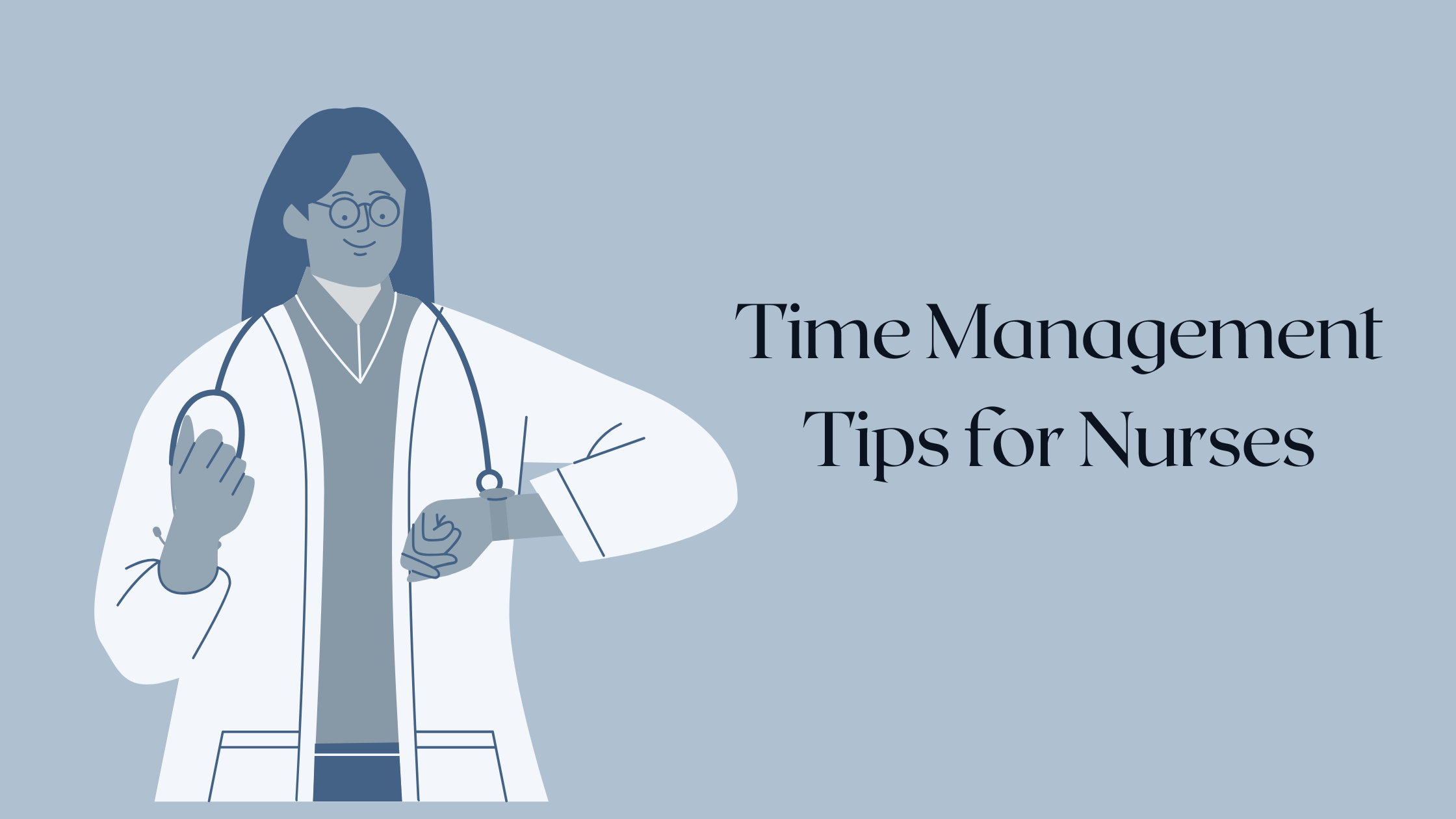
In the fast-paced and demanding world of nursing, effective time management is a critical skill that can make all the difference. Nurses juggle multiple responsibilities, from providing patient care, documenting medical records, collaborating with healthcare teams, and staying updated on the latest medical advancements.
With so much to do and limited time available, mastering the art of time management is essential for nurses to thrive in their profession while maintaining their well-being.
Whether you are a seasoned nurse looking to refine your time management skills or a nursing student preparing to enter the profession, the following tips can be invaluable in managing your time.
1: Take Advantage of Technology
In today’s digital age, technology offers numerous tools and resources leveraging which nurses can streamline their tasks, improve communication, and access information efficiently. One such system is electronic health records (EHR) which allows the documentation of patient information electronically, reducing the need for paper-based records.
With EHRs, nurses can enter and retrieve data quickly, saving time and eliminating the hassle of searching through paper charts. Accessing patient information enables nurses to make informed decisions and provide timely care.
Mobile apps designed for nurses are another valuable resource. These apps offer a range of functionalities that can assist with various tasks. For instance, medication administration apps provide drug reference databases, dosage calculators, and medication reminders.
Nurses can use these apps to double-check medication orders, ensure accurate dosing, and receive alerts for medication administration times.
These mobile apps can be particularly useful for nurses who juggle work and education side by side. As you would be well aware, pursuing advanced degrees and full-time careers has been the norm for a long time.
The nursing field is no different, as many practicing nurses are enrolled in MSN education programs or similar degrees. Utilizing mobile apps designed especially for nurses can be quite handy for such nurses. It can assist real-time communication among healthcare team members and speed up medical processes.
2: Prioritize Tasks
Prioritizing tasks involves identifying and organizing them based on their urgency and importance. This allows nurses to focus their efforts on critical activities. For example, a nurse may prioritize administering medications to patients experiencing acute pain over updating non-essential documentation.
By understanding the immediate needs of patients and the impact certain tasks have on their well-being, nurses can effectively manage their time and provide timely, quality care.
3: Create a Daily Schedule
Developing a daily schedule is crucial for nurses to structure their day and maximize productivity. It involves allocating specific time slots for different activities and ensuring all necessary tasks are accounted for.
For instance, a nurse’s schedule might include patient rounds in the morning, followed by documentation and collaboration with other healthcare professionals. By creating a clear schedule, nurses can better manage their time, reduce the likelihood of missed tasks, and maintain an organized workflow.
4: Delegate when Possible
Delegation is a valuable time management strategy that involves assigning tasks to other competent healthcare professionals. A nurse may delegate the collection of vital signs to a nursing assistant while focusing on more complex nursing interventions.
Delegating tasks helps distribute the workload and enables nurses to prioritize their time and energy on activities that require their expertise. By effectively delegating, nurses can optimize their productivity and provide quality care to more patients.
5: Minimize Distractions
Distractions can significantly hinder time management and productivity. Nurses should establish boundaries and create a focused work environment to minimize distractions. This may involve silencing or turning off notifications on electronic devices during critical tasks, finding a quiet workspace away from high-traffic areas, or using noise-canceling headphones.
By proactively managing distractions, nurses can maintain their focus, complete tasks efficiently, and reduce the need for task-switching, ultimately saving time and energy.
6: Streamline Documentation
Documentation is an integral part of nursing practice, but it can be time-consuming. One efficient and practical way nurses can streamline their documentation process is by utilizing electronic medical record (EMR) systems.
EMR systems usually use templates or standardized documentation forms, utilizing pre-populated fields and leveraging voice recognition software. All in all, streamlining documentation saves time and enhances accuracy and consistency.
7: Practice Effective Communication
Effective communication is crucial for nurses to manage their time and coordinate with other healthcare professionals. This involves conveying information clearly and concisely to avoid misunderstandings or the need for unnecessary clarification.
Nurses can use standardized communication techniques, such as SBAR (Situation, Background, Assessment, Recommendation), during shift handovers or when discussing patient care with colleagues.
This approach contributes to saving a lot of time, improves collaboration, and enhances overall efficiency in delivering patient care.
8: Utilize Breaks Wisely
During breaks, nurses can take a few moments to evaluate their progress and reassess their priorities. This reflective pause allows them to identify any tasks needing adjustment or reordering.
They can evaluate their current schedule, assess their energy levels, and make any necessary modifications to ensure optimal time allocation for the remaining tasks.
Additionally, breaks can be used to engage in brief rejuvenating activities. Taking a short walk, practicing deep breathing exercises, or enjoying a healthy snack can help refresh the mind and increase focus.
By taking short but purposeful breaks, nurses can optimize their time management strategies, reduce the risk of burnout, and provide the best possible care to their patients.
Conclusion
Effective time management is essential for nurses striving to provide exceptional patient care while maintaining their well-being. Remember to prioritize tasks, create a daily schedule, and delegate when possible to optimize your time.
Minimize distractions, streamline documentation processes, and practice effective communication to avoid unnecessary delays. Moreover, taking care of yourself is paramount to managing your time effectively, so allocate time for self-care and utilize breaks wisely to recharge and refocus.
By mastering the art of time management, you can navigate the demands of your nursing profession with confidence, efficiency, and a renewed sense of fulfillment.